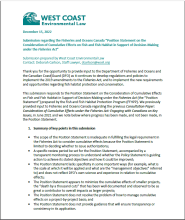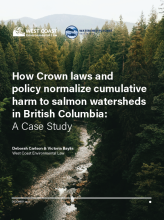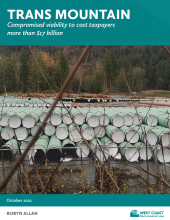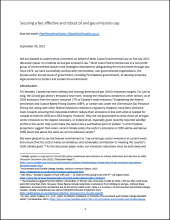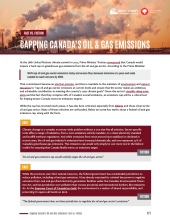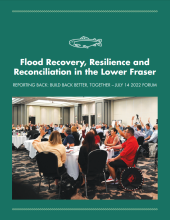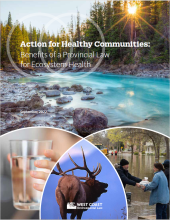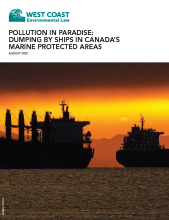Publications
Browse our recent publications, including reports, briefs, submissions to government, and other materials.
Use the search criteria to filter by topic, date, author and/or keywords.
Publication Date: January 2023
Pages: 4
Topics: fish, fish habitat, ecologically sensitive areas
Publication Date: December 2022
Pages: 8
Topics: Fisheries Act, Fish Habitat, Cumulative Effects
Publication Date: December 2022
Pages: 54
Topics: Watersheds, salmon, fish passage, salmon infrastructure
Publication Date: October 2022
Pages: 36
Topics: Trans mountain, pipelines and tankers, climate change
Publication Date: September 2022
Pages: 6
Topics: Oil and gas emissions, climate change
Publication Date: September 2022
Pages: 2
Topics: Climate change, emissions cap, oil and gas emissions
Publication Date: September 2022
Pages: 30
Topics: Flood recovery, climate adaptation, reconciliation
Publication Date: September 2022
Pages: 17
Topics: Biodiversity and Ecosystem Health, Biodiversity Legislation, Local Government
Publication Date: August 2022
Pages: 16
Topics: Marine Protected Areas (MPAs), ocean dumping, vessel pollution
Publication Date: August 2022
Pages: 11
Topics: Sue Big Oil
